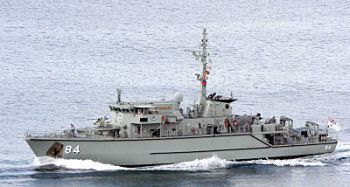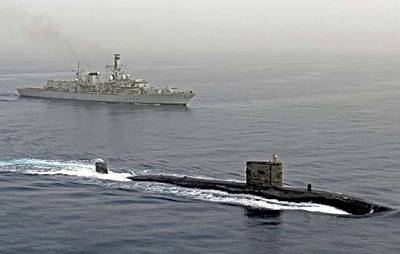WASHINGTON, June 17, 2010 — The United States is better off with the new strategic arms reduction treaty with Russia than it is without it, Defense Secretary Robert M. Gates told the Senate Armed Services Committee today.
Navy Adm. Mike Mullen, chairman of the Joint Chiefs of Staff, also urged the committee to ratify the agreement, saying the treaty has the full support of uniformed leaders. Gates and Mullen testified alongside Secretary of State Hillary Rodham Clinton and Energy Secretary Steven Chu.
The agreement reduces U.S. and Russian strategic nuclear forces in a way that strengthens the stability of the U.S.-Russian relationship, Gates said. The agreement, he added, also protects the security of the American people, and “does not in any way constrain our missile defense programs.”
The secretary stressed that the treaty will not constrain the United States from deploying the most effective missile defenses possible, nor will it impose additional costs or barriers on those defenses.
“I remain confident in the U.S. missile defense program, which has made considerable advancements, including the testing and development of the SM‑3 missile which we will deploy in Europe,” he said.
Russia continues to object to U.S. missile defense. Still, Gates said, the American system is designed to intercept a limited number of ballistic missiles launched by a rogue state.
“Our missile defenses do not have the capability to defend against the Russian Federation’s large, advanced arsenal,” he explained. “Consequently, U.S. missile defenses do not, and will not, affect Russia’s strategic deterrent.”
The United States will continue to try to get the Russians to cooperate on missile defense, Gates said.
The new treaty also does not restrict U.S. ability to develop and deploy conventional prompt global strike capabilities that could attack targets anywhere on the globe in an hour or less, the secretary said.
The treaty limits the United States to 700 deployed delivery vehicles and no more than 1,550 deployed warheads, and Gates emphasized that the treaty’s verification provisions will allow the United States to ensure the Russians hold up their end of the agreement.
“In my view, a key contribution of this treaty is its provision for a strong verification regime,” he said. “I would like to emphasize some of the key elements of this regime, which will monitor Russia’s compliance with the treaty, while also providing important insights into the size and composition of Russian strategic forces.”
Each side can conduct up to 18 on-site inspections each year at operating bases for intercontinental missiles, nuclear-capable submarines and nuclear-capable heavy bombers as well as storage facilities, test ranges and conversion and elimination facilities, Gates said. The agreement establishes a database updated every six months, which will help provide the United States with a rolling overall picture of Russia’s strategic offensive forces and vice versa.
“Unique identifiers, for the first time, will be assigned to each ICBM, SLBM and nuclear-capable heavy bomber, allowing us to track accountable systems throughout their life cycle,” Gates said.
The U.S. nuclear deterrent remains a crucial capability, the secretary said, and to ensure its credibility, the nation must maintain an adequate stockpile of safe, secure and reliable nuclear warheads.
“This calls for a reinvigoration of our nuclear weapons complex – our infrastructure and our science, technology and engineering base,” Gates said. “And I might just add, I’ve been up here for the last four springs trying to get money for this, and this is the first time I think I’ve got a fair shot of actually getting money for our nuclear arsenal.”
Mullen assured the senators that the U.S. military leadership’s perspectives and concern’s were heard.
“During the development of the new START treaty, I was personally involved,” the admiral said, “to include two face-to-face negotiating sessions and several other conversations with my counterpart, the chief of the Russian General Staff, General [Nikolai] Makarov, regarding key aspects of the treaty.”
Mullen spoke for the rest of the Joint Chiefs of Staff before the committee, and he said the treaty retains a strong and flexible American nuclear deterrent.
“It helps strengthen openness and transparency in our relationship with Russia,” he said. “It also demonstrates our national commitment to reducing the worldwide risk of a nuclear incident resulting from the continuing proliferation of nuclear weapons.”
Both Gates and Mullen urged ratification. Gates said the agreement is good for today and the future.
“It increases stability and predictability, allows us to sustain a strong nuclear triad, preserves our flexibility to deploy the nuclear and non-nuclear capabilities needed for effective deterrence and defense,” the secretary said. “In light of all these factors, I urge the Senate to give its advice and consent to ratification of the new treaty.”
Source:
U.S. Department of Defense
Office of the Assistant Secretary of Defense (Public Affairs)

 von
von 
